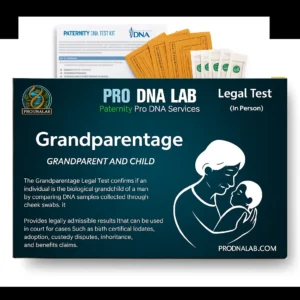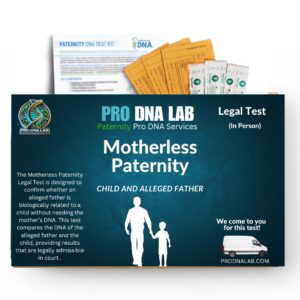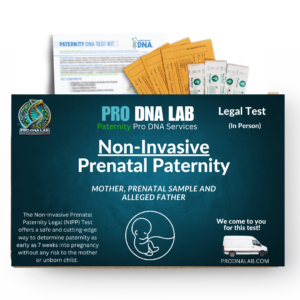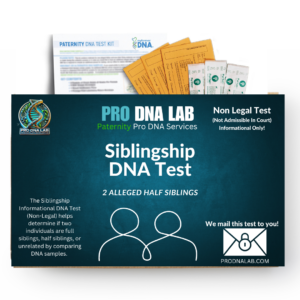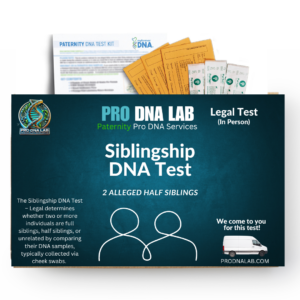Lifestyle DNA Testing – Understanding Your Unique Genetic Makeup for Healthy Weight, Skincare, Food Sensitivities, and Pet Allergies
Lifestyle DNA testing is an emerging field that uses genetic analysis to provide personalized insights into various aspects of your health and daily life. Unlike traditional DNA tests that focus on ancestry or paternity, lifestyle testing focuses on how your genetic makeup can affect your diet, skincare, weight management, and even your reactions to pets or certain foods. This type of testing helps you make more informed decisions about your health and lifestyle choices.
1. Healthy Weight DNA Testing – Personalized Weight Management
Many factors contribute to how your body processes food, stores fat, and loses weight, and your genes play a significant role in these processes. Healthy weight DNA testing analyzes specific genetic markers that influence your metabolism, appetite, and response to exercise, providing tailored recommendations for achieving and maintaining a healthy weight.
How It Works:
- A simple cheek swab or saliva sample is collected and analyzed.
- Your DNA is compared to genetic markers associated with weight management, metabolism, and food processing.
- Based on the results, you receive personalized recommendations on diet, exercise, and lifestyle changes that suit your genetic profile.
Why It’s Useful:
- By understanding how your body responds to different foods and activities, you can create a weight management plan that is more effective and sustainable for you.
2. Skincare DNA Testing – Tailored Skincare for Your Genetic Makeup
Your skin’s appearance, texture, and susceptibility to aging are all influenced by your genes. Skincare DNA testing analyzes your genetic predispositions related to skin health, such as collagen production, sensitivity to sun damage, and hydration levels. This allows you to tailor your skincare routine to your unique genetic profile.
How It Works:
- A DNA sample is collected and analyzed for genetic markers related to skin health.
- The test identifies how your skin reacts to environmental factors, your likelihood of premature aging, and whether your skin tends to be dry or oily.
- You receive personalized skincare recommendations, including products and routines that best match your skin type.
Why It’s Useful:
- With DNA-based insights, you can create a skincare regimen that effectively targets your skin’s specific needs, helping you achieve healthier, more youthful-looking skin.
3. Food Sensitivity DNA Testing – Discover How Your Body Reacts to Different Foods
Some people experience adverse reactions to certain foods without understanding why. Food sensitivity DNA testing helps identify whether your genes predispose you to sensitivities or intolerances to specific foods, such as dairy, gluten, or caffeine. This test also provides insights into your body’s ability to process certain nutrients.
How It Works:
- A DNA sample is taken and analyzed for genetic markers related to food sensitivities and intolerances.
- The test identifies potential triggers in your diet that could lead to discomfort, bloating, or digestive issues.
- You receive personalized dietary recommendations based on your genetic results.
Why It’s Useful:
- Understanding your genetic predisposition to food sensitivities allows you to make smarter dietary choices, avoid triggers, and improve your overall well-being.
4. Pet Allergy DNA Testing – Determine Your Genetic Sensitivity to Pets
Many people are allergic to pet dander, but the severity of the reaction varies from person to person, and genetics play a significant role in this. Pet allergy DNA testing helps identify whether you have a genetic predisposition to pet allergies, allowing you to manage your living environment and interactions with pets more effectively.
How It Works:
- A DNA sample is collected and analyzed for genetic markers associated with pet allergies, specifically to proteins found in pet dander, saliva, and urine.
- The results indicate whether you are genetically predisposed to developing allergic reactions to dogs, cats, or other pets.
- You receive advice on managing pet allergies based on your genetic results.
Why It’s Useful:
- If you have a genetic predisposition to pet allergies, you can take proactive steps to reduce exposure, improve indoor air quality, or explore hypoallergenic pet options.
Conclusion
Lifestyle DNA testing is a valuable tool for understanding how your genes affect various aspects of your health and daily life. Whether you’re looking to achieve a healthy weight, improve your skincare routine, manage food sensitivities, or reduce pet allergy symptoms, these personalized insights can help you make informed decisions and optimize your lifestyle.



